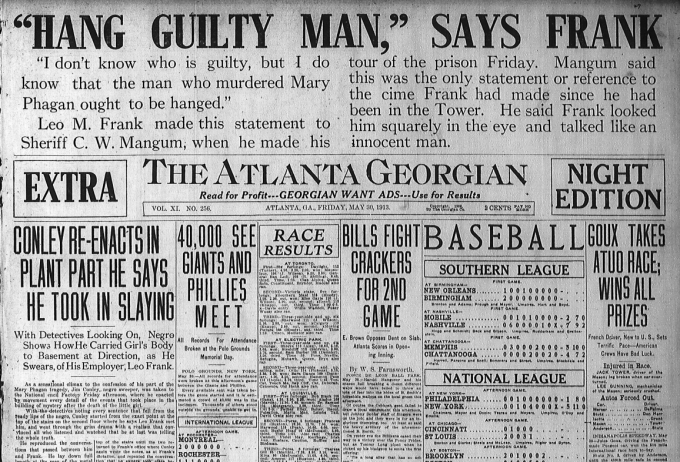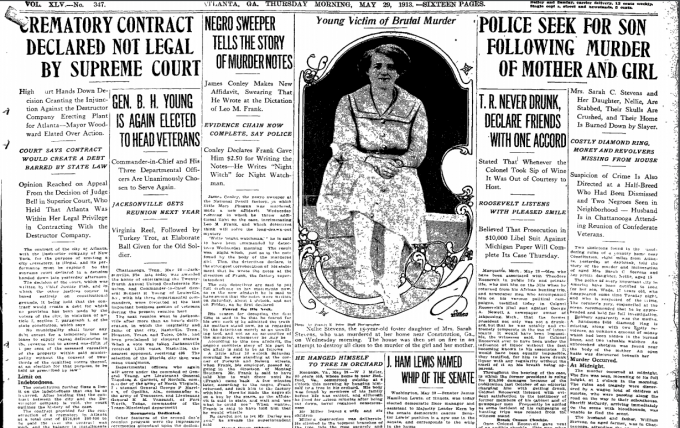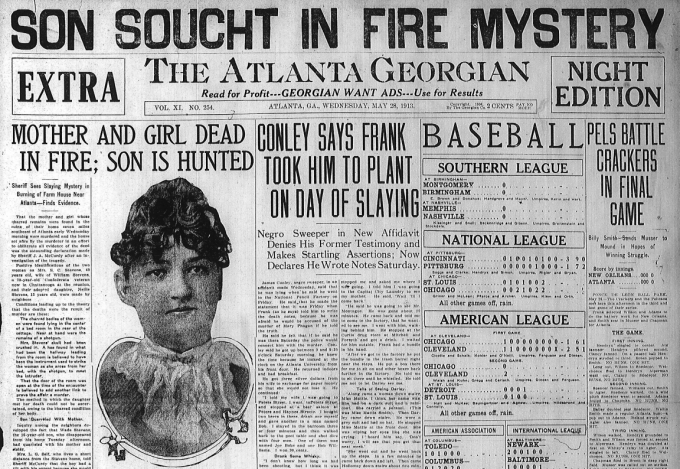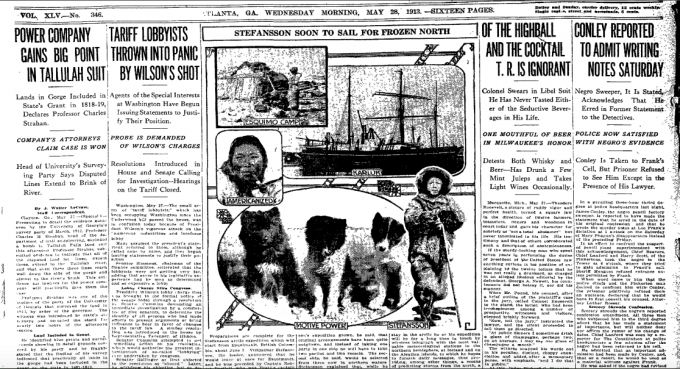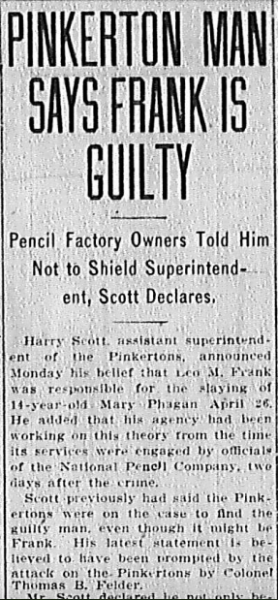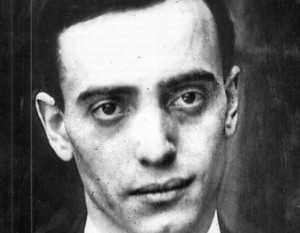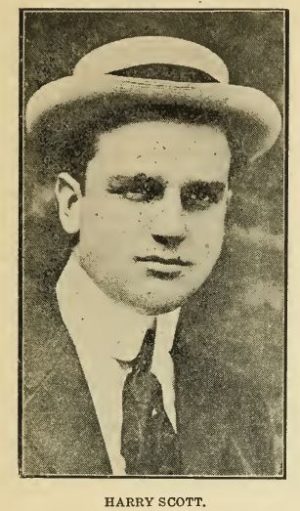 Another in our series of new transcriptions of contemporary articles on the Leo Frank case.
Another in our series of new transcriptions of contemporary articles on the Leo Frank case.
The Atlanta Georgian
Friday, July 18, 1913
POLICE HALT GRILLING OF CONLEY
Detective Bent on Questioning Negro Is Barred From Cell by Chief Lanford.
With Pinkerton detectives taking the trail in search of W.H. Mincey, whose startling accusations against Jim Conley stirred the police department and won the negro another “sweating” from Solicitor Dorsey, the Mincey affidavit Friday became the storm center about which the prosecution and defense in the Frank case waged their battle.
Despite the degree of indifference with which the detectives and prosecuting officials affected to look upon the remarkable statements of Mincey, it became known Friday that every effort was being bent toward locating him and turning the light on his past history.
Pinkertons Have Clew.


 Another in
Another in 
 Another in
Another in  Another in
Another in  Another in
Another in  Another in
Another in 

 Another in
Another in  Another in
Another in 
